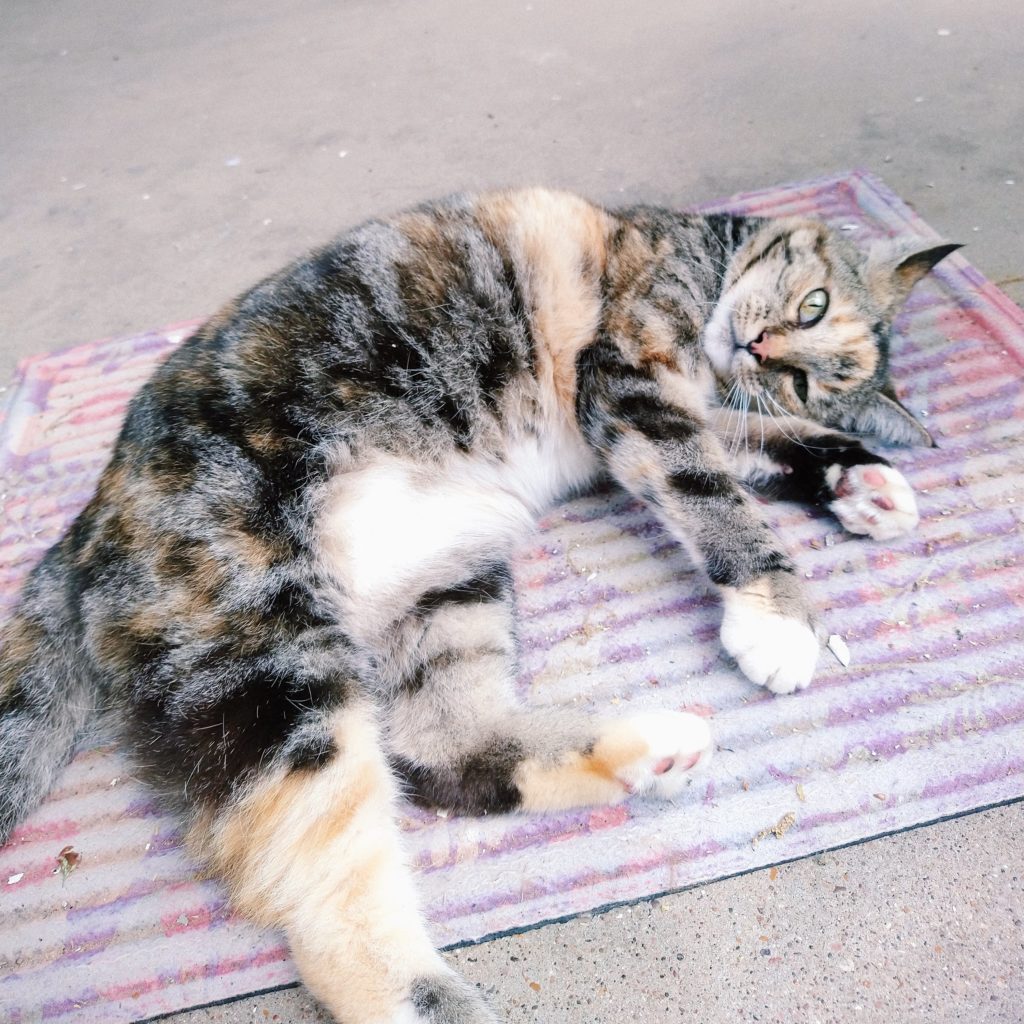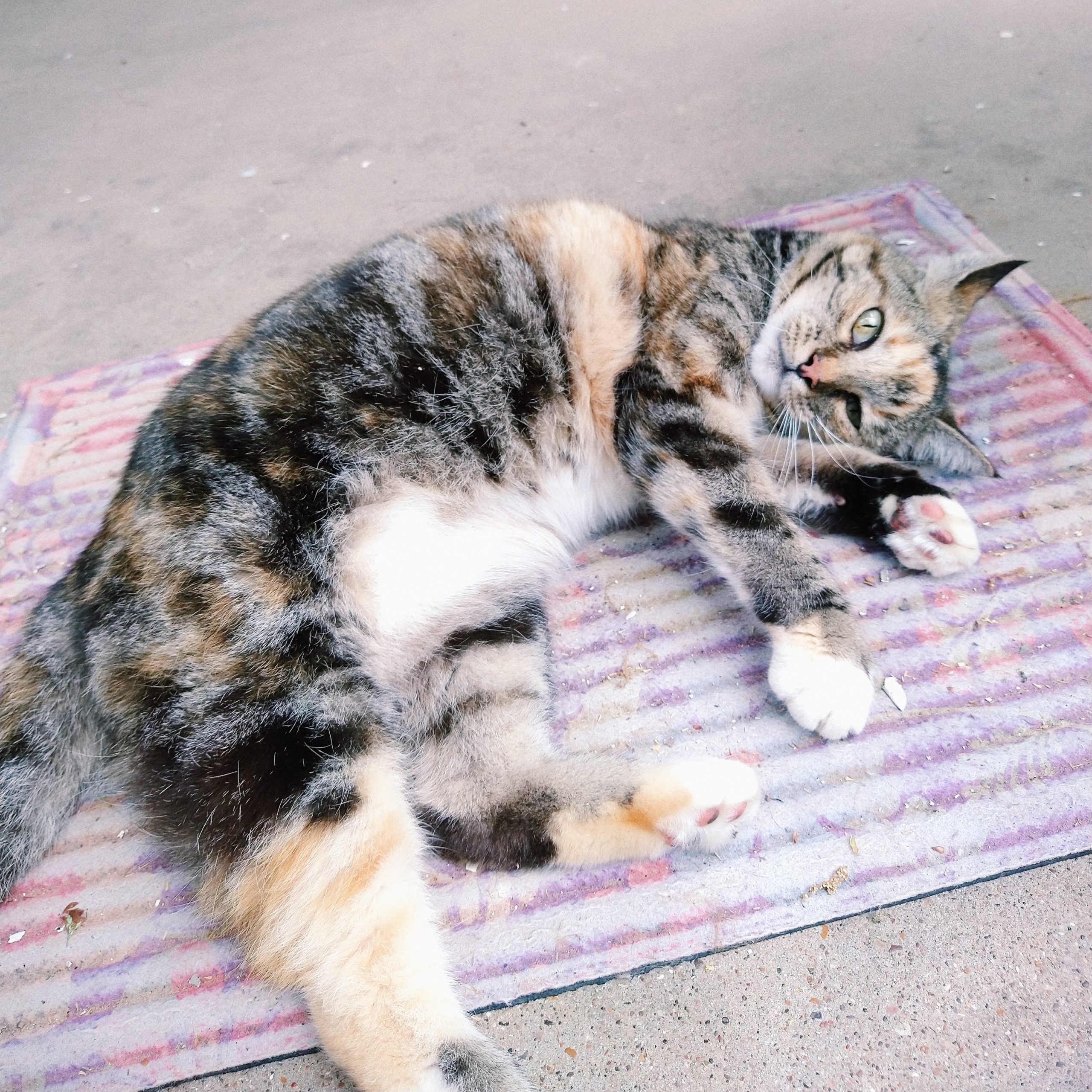Why Does My Cat Always Stare at Me?
Cats are known for their intent, unwavering stares. While this stare may seem unnerving, it’s often a sign of affection or curiosity. There are several common reasons why cats stare at their owners. Understanding why yours stares at you can help strengthen your bond.

Your cat is trying to communicate
Staring is a way to get your attention. Have you ever been in a public place, felt like eyes were on you, and turned to see someone looking at you? Cats stare at you for attention because they hope you’ll notice them.
If you don’t after a while, they may grow impatient and make noise or move to a place where they’re more in your direct line of sight. They’re not doing it to freak you out.
Cats stare to indicate they want to play, eat or be petted. Wide-eyed staring may signal excitement or interest.
The more you respond to your cat’s staring, the more you’ll be able to differentiate the nuances in their staring behavior.
My cat, for example, stares at me in different places. She likes her litter box cleaned out midday and at night before I go to bed, so she will sit in the doorway to her litter box and wait for me to notice; she’ll meow if I don’t notice soon enough. I didn’t realize that this was what she was communicating to me until she was two about years old.
She’ll also sit and stare at me from the top of her scratching post for wet food, or the kiddie table where her food puzzle sits, to be fed.
Your cat is showing affection
Soft gazes show your cat feels safe and content with you. Slow blinking communicates trust and happiness; however, it may also be their attempt at getting a specific kind of food.
Direct eye contact mimics natural cat bonding behaviors.
You can further bond with your cat by slowly blinking back at them when they do and looking at them warmly, with a smile on your face. Cats develop bonds with their owners similar to that of infants with their caregivers, when the environment allows for it.
Your cat is observing and assessing you
Staring helps cats understand human facial expressions and moods. Gazing is a form of communication for cats, so they gather a lot of information from watching you.
Your cat also watches you closely to anticipate what you need, whether that’s protection or touch — or even distance. They may also be watching you to see if you’ll do anything interesting that benefits them, like refreshing their water, filling their food bowl, or grabbing one of their toys to initiate playtime.
Your cat may be overstimulated
Sometimes, cats will stare at their owners when they feel overwhelmed. Too much petting or play may over-arouse your cat to the point they stare at you; they might be waiting for the right time to attack.
Try redirecting your cat to engage in more independent activities, like scratching posts or food puzzles, and limit playtime to two 15-minute sessions at most per day. Learn how to recognize when your cat is done with pets — oftentimes, you’ll see a “ripple” affect throughout their body or they will move away from your touch.
Is your cat on catnip?
Cats on catnip may stare at you or “off into space” when they’re high on catnip. Catnip may affect cats for anywhere between a few minutes to several hours. If they’re still affected the next day and you’ve ensured they don’t have access to catnip, consult their veterinarian to determine if there are other causes at hand.
Catnip is generally harmless, but cats can be allergic to certain types of catnip (even if it’s safe for cats).
Feline OCD
Pay attention to your cat when they stare at you. Consider the following:
- Where are they when they’re staring?
- What are you doing?
- Do they have fresh water, a clean litter box, and a bowl full of food?
- When was the last time you played with them?
If your cat’s staring becomes compulsive, talk with your vet to rule out other causes. If your cat stares at you routinely, this may be a sign of feline obsessive compulsive disorder (OCD). Other symptoms include wanting their litter box scooped multiple times a day, obsessing over food, pica, tail-chasing, feline hyperesthesia, and over-grooming.
Feline hyperesthesia is similar to sensory avoidance in neurodivergent people. Cats with feline hyperesthesia are extremely sensitive in an area of their skin, usually on their back, right before their tail. Cats with this condition will react more sensitively to touch, their body may “ripple” or they may avoid being touched there altogether.
Cats with OCD will stare more frequently at their owners. They also tend to freeze when they’re afraid and may run TOWARDS danger.
Knowing whether your cat has OCD can help you keep your cat safe and avoid panic-related behaviors, such as vomiting or wheezing due to stress. Cats who experience too much stress are at risk for severe illnesses. Antianxiety medication can help cats with OCD handle day-to-day life, as well as adjust to certain changes.
Feliway diffuser plug-ins throughout the house may help calm your anxious cat, and spraying their carrier or bedding with Feliway helps create “safe spaces”. Some cats don’t respond to Feliway, and your vet will help you figure out the best solution.
Maintaining a strict routine with my cat helps keep her OCD until control. This requires me to maintain a routine of my own as well. Everyday, she plays, receives her food, gets fresh water, and has her litter box cleaned out at the same exact time. If I’m not home to do it, my housemate does it.
I don’t travel without taking her with me or leaving her with someone who knows how to pill a pet and can give her her anxiety meds. Rover has cat sitters who can drop in and provide medical assistance like this, but this isn’t an option for my cat.
